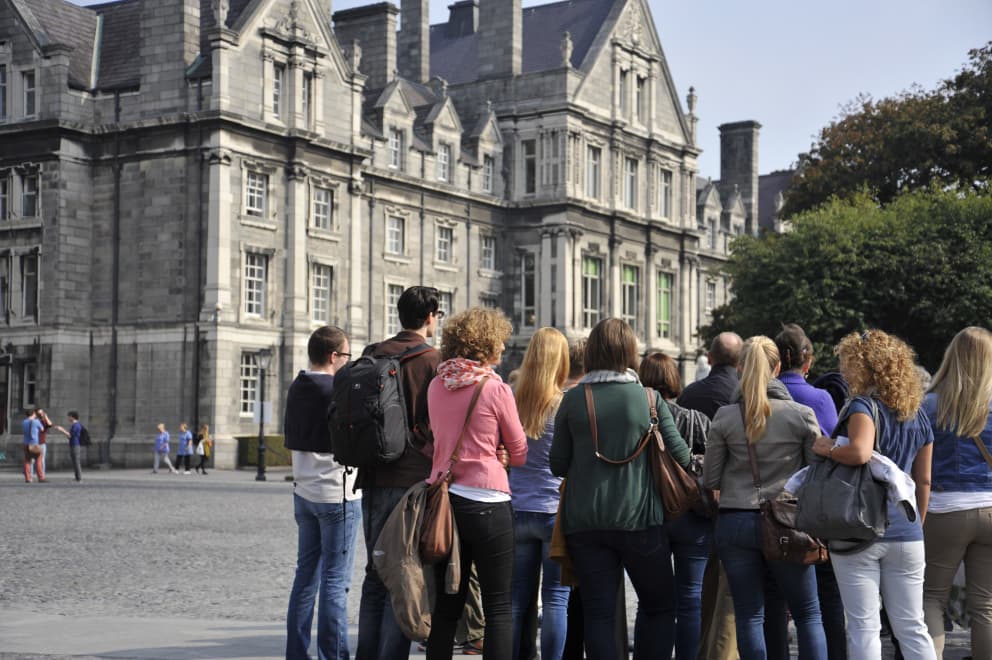What Are the Public Ivies? The Full List & Overview

Summary
The Public Ivies are top-ranking public universities in the U.S. recognized for academic excellence, faculty, research opportunities, and overall reputation, designed to rival the Ivy League. The term originated in 1985 when Yale graduate Richard Moll evaluated public schools across the country and identified eight as comparable to Ivy League institutions. While different lists exist, Crimson’s updated list (as of 2024) includes UCLA, UC Berkeley, University of Michigan–Ann Arbor, University of Virginia, University of North Carolina–Chapel Hill, University of Florida, University of Texas–Austin, and Georgia Tech.
What Are the Public Ivies?
The Public Ivies are top-ranking public schools considered to rival The Ivy League in terms of quality of education, faculty, research opportunities, and other aspects.
Similar to other lists like The Little Ivies or The New Ivies, The Ivy League here is used as a benchmark to highlight the high quality of education.
For context: the original list of Public Ivies was created years ago by Richard Moll, a Yale graduate who also worked in admissions at different universities.
He traveled throughout the US, assessing different public schools in terms of academics, facilities, resources, faculty, and campus life to select 8 public schools he deemed comparable to the Ivy League.
List of Public Ivies
The original list of Public Ivy League Schools was published in 1985, but surprisingly, most of the schools included in the list back then are still some of the top-ranking public schools in the country today.
Different lists have been published since, and because it's not a trademarked term, there's no general consensus on what the Public Ivies are.
We’re adding our own list — it’s pretty similar to the original, but times have definitely changed since 1985!
We based our list on input from our expert strategists who work with students aiming for top universities. They considered factors like reputation, quality of education, faculty, and opportunities after graduation.
List of Public Ivies
| Note: Rankings updated as of Nov 2024 | |||
|---|---|---|---|
| Crimson List | Current Ranking (US News, Top Public Schools) | Original List | Current Ranking (US News, Top Public Schools) |
| University of California, Los Angeles | 1 | University of California Schools (campuses as of 1985) | 1 - 42 (depending on campus) |
| University of California, Berkeley | 2 | University of Michigan | 3 |
| University of Michigan (Ann Arbor) | 3 | University of Virginia | 4 |
| University of Virginia | 4 | University of North Carolina at Chapel Hill | 5 |
| University of North Carolina at Chapel Hill | 5 | University of Texas at Austin | =7 |
| University of Florida | =7 | College of William & Mary | 23 |
| University of Texas at Austin | =7 | Miami University | 69 |
| Georgia Tech | 9 | University of Vermont | 61 |
You’ll notice a major difference between our list and the original list: the original list classified all UC Schools as one. We don’t find that particularly reasonable since different UC schools have different rankings, areas of expertise, faculty and other unique aspects.
Based on this, here are the schools we consider The Public Ivies:
- UCLA
- UC Berkeley
- UMich - Ann Arbor
- University of Virginia
- University of North Carolina
- University of Florida
- U Texas Austin
- Georgia Tech
Our Public Ivies List
1. UCLA
Location: Los Angeles, California
UCLA is popular. In fact, it was the most applied-to university in the US in Fall 2022, and actually ranks as the 15th best university in the US by US News.
The school has about 16 Nobel prize winners, 11 Rhodes scholars, and 2 Turing award winners as part of their alumni or faculty.
UCLA has over 130 undergraduate majors and 90 graduate majors, but some of their most unique programs are Climate Science, Architectural Studies, Ethnomusicology, and Design Media Arts.
2. UC Berkeley
Location: Berkeley, California
Similar to UCLA, UC Berkeley is placed as one of the best national universities, ranking as the 17th best university in the US.
UC Berkeley offers some unique programs in Science & Engineering such as Data Science, Nuclear Engineering, Geophysics. We've also ranked it as one of the best architecture schools in the US.
3. UMich — Ann Arbor
Location: Ann Arbor, Michigan
Acceptance rate: 17.94%
UMich is one of the oldest research universities, and the years of expertise it has is reflected in its quality of education.
The school is part of the AAU, an organization of research universities dedicated to maintaining a system of excellent academic research.
UMich is considered a leader in higher education, with its 19 schools and colleges recognized as among the best globally.
4. University of Virginia
Location: Charlottesville, Virginia
UVA consistently ranks among the top public universities in the US, and one of the best overall. Its School of Engineering and Applied Science and Darden School of Business are recognized globally for their excellent overall standards.
Besides its exceptionally beautiful campus, UVA also offers a lot of undergraduate and graduate programs. Some of the unique ones are Global Studies, Political and Social Thought, and Environmental Sciences.
5. University of North Carolina
Location: Chapel Hill, North Carolina
Acceptance rate: 18.47%
North Carolina was actually the first public university to start operating in the US, and it was the first and only university to award a degree in the US in the 18th century!
North Carolina's excellent quality of education has been one of its signature characteristics ever since it was established in 1789. Some standout programs offered by UNC are programs in fields like Journalism, Health Policy, and Sports Management.
6. University of Florida
Location: Gainesville, Florida
Acceptance rate: 21.82%
One of the largest universities in the US, with 54,814 students in Fall 2023. The University of Florida has 16 academic colleges and more than 150 research centers and institutes.
UF has strengths in fields like Agricultural and Life Sciences, Biomedical Engineering, and Business Administration. Plus, with its sunny location, it’s the perfect hub for students who enjoy combining academics with an active lifestyle.
7. U Texas at Austin
Location: Austin , Texas
Acceptance rate: 11%
UT Austin is a leading research institution and a cultural hub in one of America’s fastest-growing cities.
Known for its strong business, engineering, and law programs, UT is also famous for its McCombs School of Business and Cockrell School of Engineering. With its “Hook 'em Horns” spirit, UT combines academic excellence with a lively campus culture.
8. Georgia Tech
Location: Atlanta, Georgia
Acceptance rate: 13.81%
In today's technology-driven world, Georgia Tech stands out in that it incorporates innovative technology in its programs.
In fact, Georgia Tech is a powerhouse in STEM education and is consistently ranked among the best engineering schools in the US. Georgia's architecture students work in digital fabrication labs. All of these exemplify how Georgia Tech puts innovation and technology at the forefront.
It also has excellent programs in fields like Computer Science, Aerospace Engineering, and Industrial Design.
What Sets the Public Ivies Apart
1. They’re All Public Schools
Unlike the traditional Ivy league, all Public Ivies were founded and operated by state governments. This is one of the main defining factors of The Public Ivies — it’s right there in the name!
The fact that they’re all public schools contributes to their identity — all the other elements that are common among public colleges are present in the Public Ivies: the large student body, the diverse extracurriculars, and varied programs.
2. Excellent Academics, Faculty and Reputation
This is a given — not only have we examined these aspects of the colleges before deciding on our Public Ivy list, but they’ve also been determining factors ever since the original list was published in 1985.
All of the Public Ivies on our list rank among the top 10 in Public Schools in the US, and are among the top 33 US schools overall.
The general perception of public schools might not always be stellar, but the Public Ivies are schools that have had an excellent reputation since their inception. For example, schools like UCLA or UMich have been ranking as one of the top schools globally for years now.
3. Lower Tuition
Being public schools, the Public Ivies have a lower tuition cost compared to the Ivy League. This is especially true for in-state tuition — the logic here is that in-state students have already funded the university by paying taxes, so they pay less in tuition fees.
With that said, even for out-of-state students, Public Ivy League Schools still tend to be more affordable than privately-owned schools. Affordable tuition without any compromise on the quality of education — that’s something that truly sets these schools apart.
Which Public Ivy Is Right for You?
Finding the right school for you depends on a lot of factors; your target major, your on-campus interests, aspirations after graduation, and so much more.
Whether it's a Public Ivy, an Ivy League school, or any top school around the world, you'll need to have an excellent application to get in.
If you need help with both finding the right school and getting in, Crimson Education offers a range of services in college admissions consulting that can support you throughout your academic journey.
- Maximize your chances of admission by working with our college admissions consultants and get started with a free consultation.
- Learn more about academics, extracurriculars, and admissions by signing up for our events and webinars on the topics that interest you.
- For more insights, review our students' admissions results and learn about our story.


